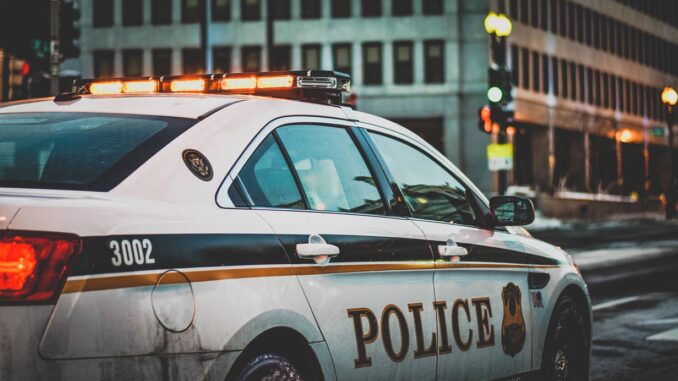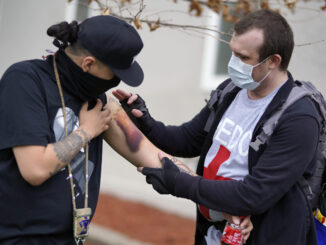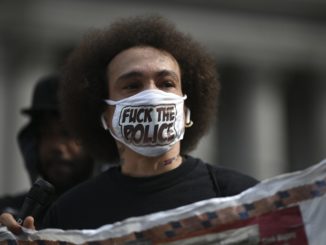
By Dr. Patrick Graham
As word spread about Lieutenant Caron Nazario’s encounter with the Windsor, Virginia police and we get closer to a verdict for the Derek Chauvin trial, my colleague suggested to me, “They messed with the wrong one now.” Upon further discussion, I realized that she spoke about more than the blue bravado demonstrated by officers Joe Gutierrez and Daniel Crocker. She suggested that Nazario’s status and image made him the “perfect victim” to demonstrate the racialized gender bias toward Black men. I immediately thought about George Floyd and others whose victimhood is complicated further by their emasculation and our society’s reliance on negative narratives of the Black male character.
In too many encounters with bad cops, Black men endure an emasculating experience. In Nazario’s case, officers brandish their guns without cause or provocation. “I’m honestly afraid to get out,” Nazario expressed to the officers while being asked to get out of his vehicle. In true blue bravado form, Gutierrez replies, “Yeah, you should be.” This behavior should not be lost on any of us. Gutierrez’s reply is not just a form of toxic masculinity. It is also a form of emasculation used to put Black men in their perceived place. The unjustified historical and cultural fear of Black males often places them in danger of racist individuals who often consider it an accomplishment to conquer them physically and mentally.
This fear was very evident in George Floyd’s murder. As Chauvin is caught on camera kneeling with all his weight on Floyd’s neck, he casually stares at the crowd with his hands in his pockets. You do not hold your hands in your pocket if you fear a suspect. The hands in the pocket are a sign of his conquest. It is reminiscent of the photos white lynch mobs took posing by dangling Black bodies hanging from trees. Many of these participants would send postcards with photos as mementos and celebrations of their conquests. This form of emasculation in Floyd’s case is captured on film and compounded by the devaluing of his life and suggesting his behavior caused his death.
George Floyd’s life is not perfect, and perfection is not a prerequisite for justice. While Nazario possesses a positive image through his service and accomplishments, as most Black men do, the defense in Chauvin’s trial uses the imperfections of Floyd’s life as an excuse for his treatment. They are also relying on America’s misplaced cultural memory concerning Black men. This was a common tactic in the murders of Trayvon Martin and others. However, like my colleague and her comments on the perfect victim, advocates for justice cannot get caught up in defending imperfections as distractions to the real issues at hand. Floyd and his family deserve justice. The evidence against Chauvin and his blue bravado is clear. Just as important, Floyd’s case is a perfect reason for America to initiate anti-lynching laws, such as the Emmett Till Antilynching Act. I believe Floyd’s case represents the ideal case because common Black men and women with everyday problems should expect justice like anyone else.






